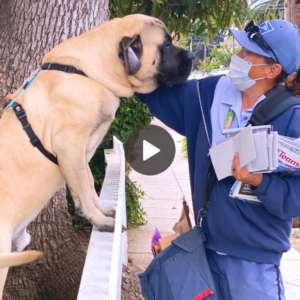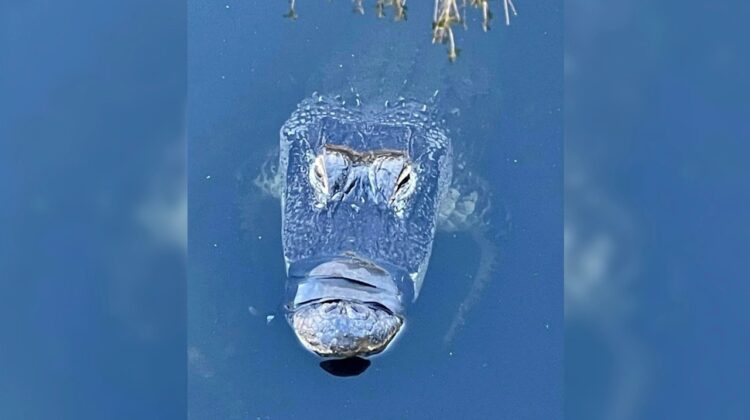
One Florida resident claims that an alligator living in a neighborhood has had its mouth taped shut since December.
Amber Lock, a local of Lumsden Reserve who sent pictures of the alligator to Nexstar’s WFLA, referred to the practices as “inhumane.”
Lock claimed that as of Tuesday afternoon, nobody had gone to the retention pond in her neighborhood to capture the reptile and free it from the conditions.
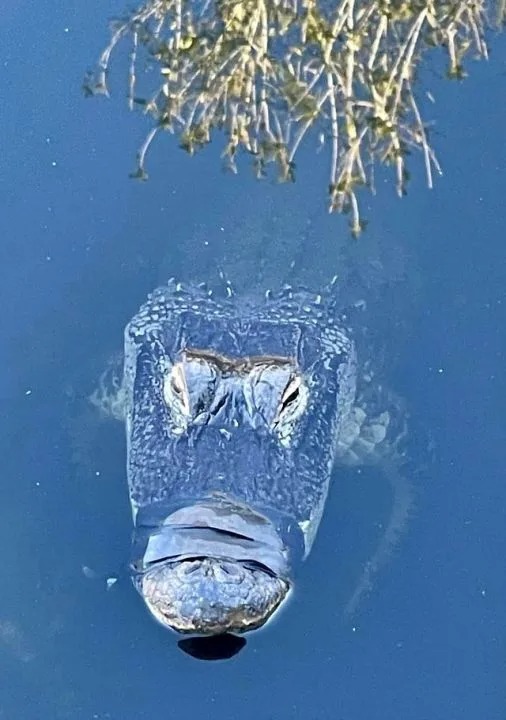
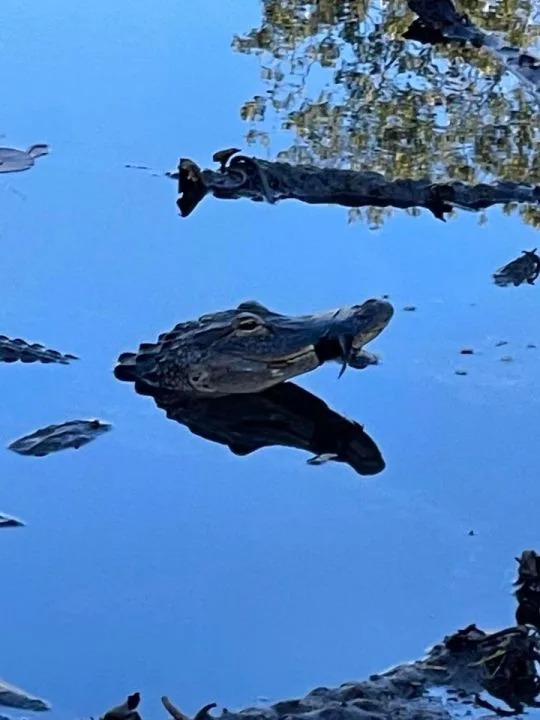
Lock said she believes the animal’s mouth was taped shut when a trapper attempted to remove the alligator, but it’s unclear why the animal was left there.
A spokesperson with the Florida Fish and Wildlife Conservation Commission explained that the delay was due to “confusion caused by two different permit requests made to two different trappers by members of the public.”
She said a trapper went to the location on Feb. 11 and saw the gator, but it disappeared from view anytime anyone came close to the water.
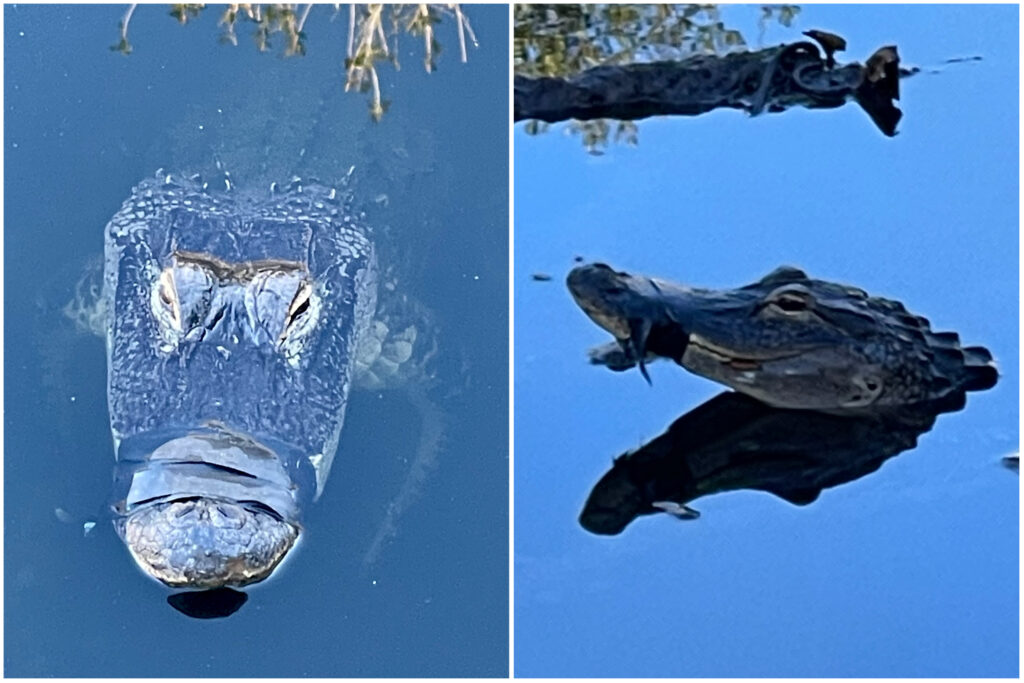
A new permit was issued on Feb. 12. The spokeswoman said the agency planned to send a contracted nuisance alligator trapper to the location to remove it from the area.
But how is the animal surviving?
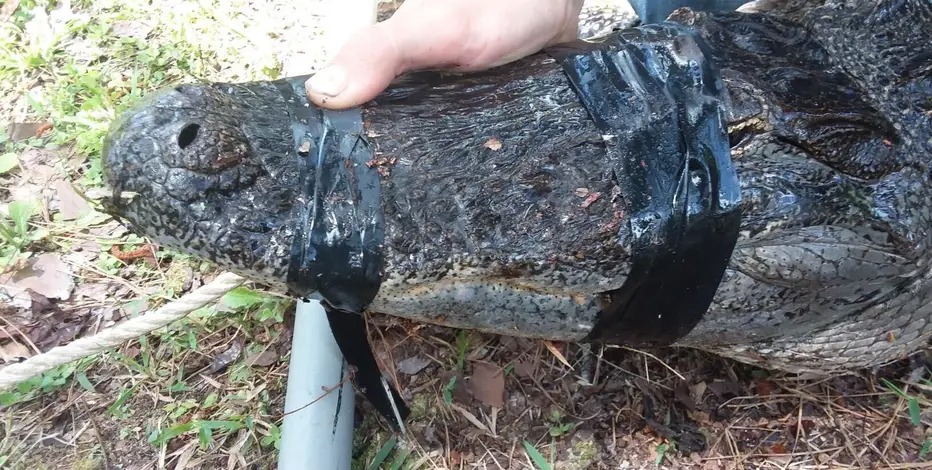
According to the FWC, alligators are “opportunistic feeders,” meaning they will eat nearly anything they can capture. However, being that gators are cold-blooded, they do not need to eat often: They typically eat once a week, but can survive up to two to three years without food.
